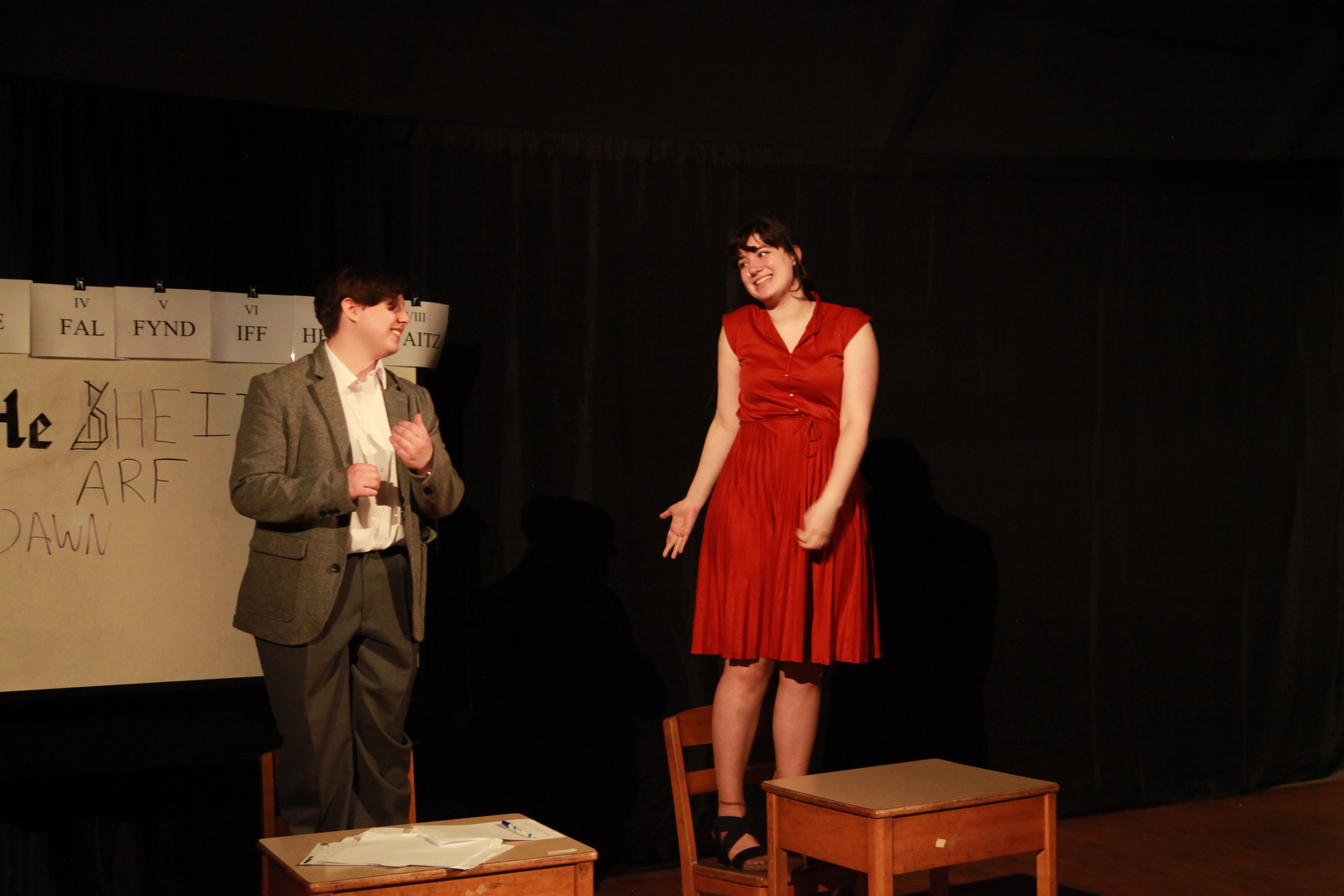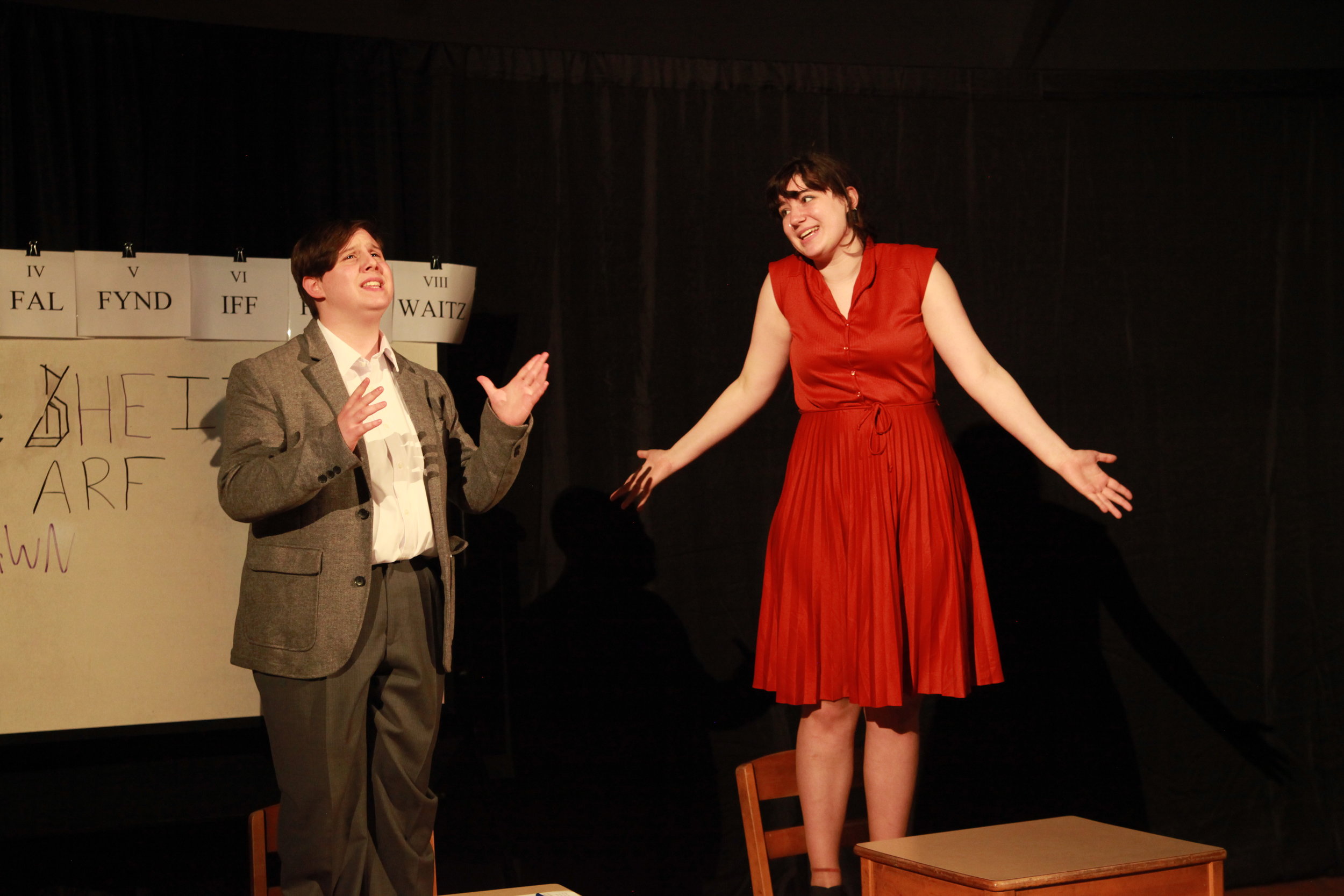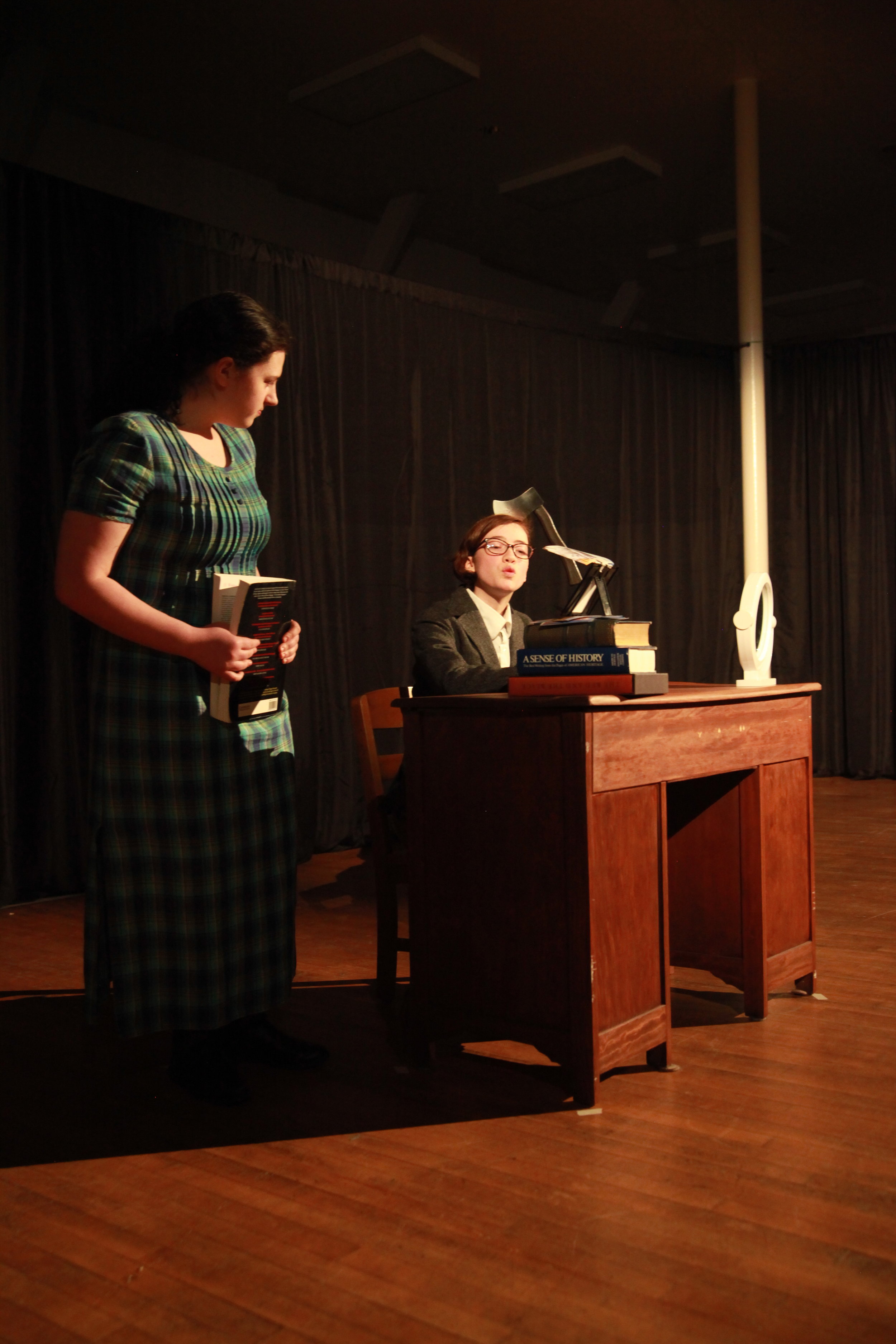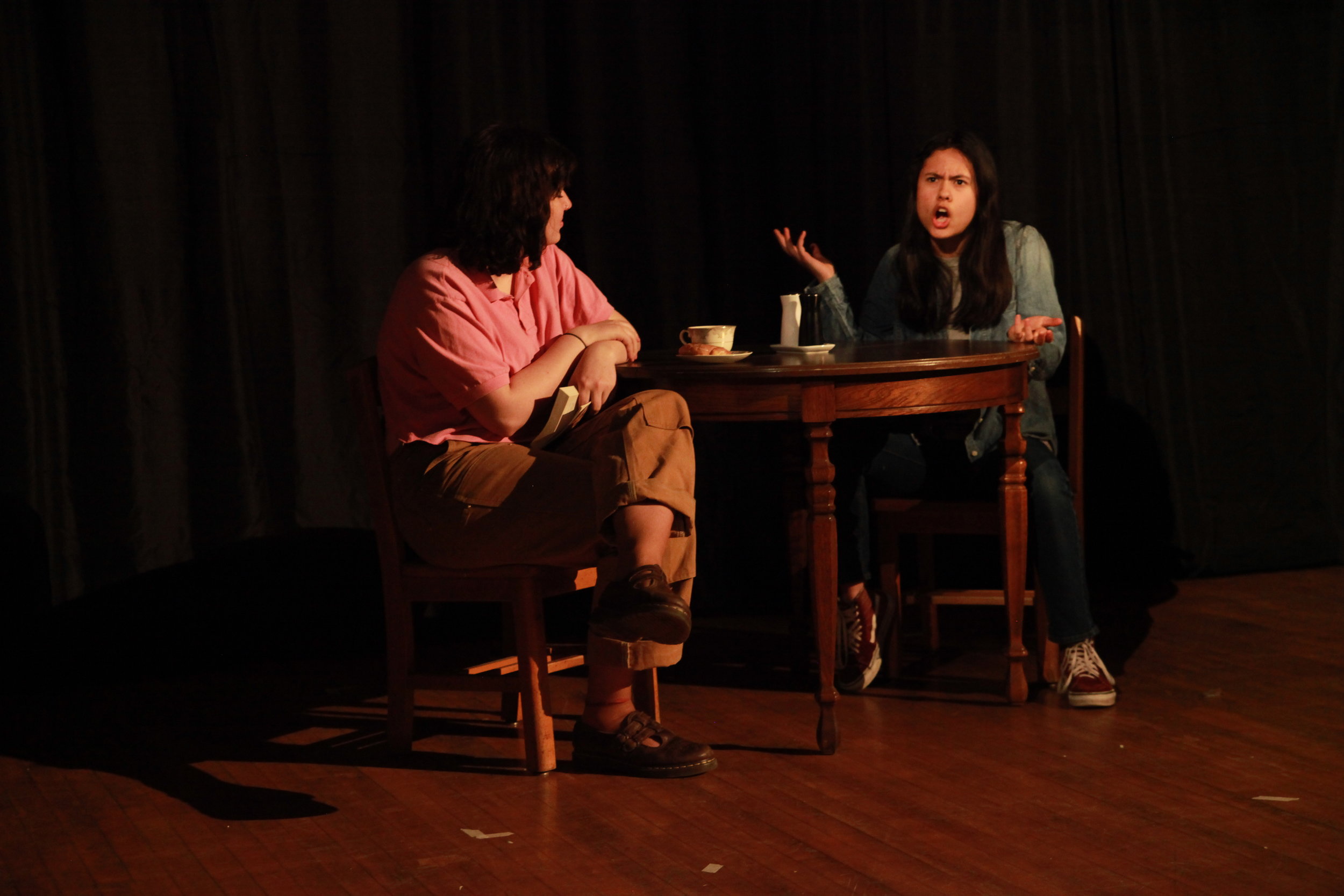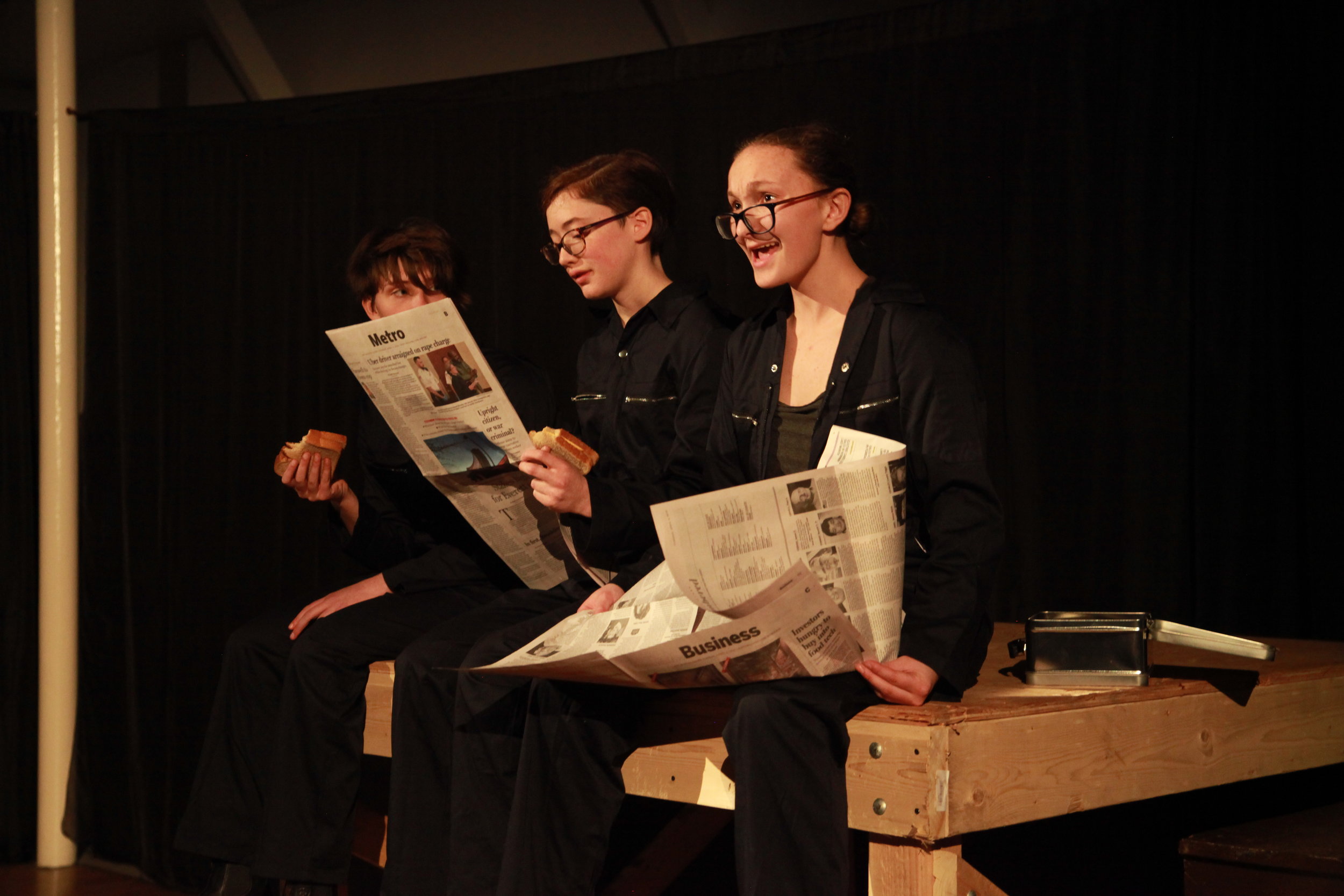Rintintintinnabulation: An actor reflects on “All in the Timing”
By Division 2 student Grace
Da rrrooongplatz? Oop da-doll! Du doppa de rektplatz! Da-meetcha playzeer. Comintern. Police. Plop da chah.
On the first rehearsal of any Meridian theater production, the entire cast gathers around a table. Brand-new scripts are laid out in front of everybody, and actors are teeming with the thrill of new lines and the fresh beginning of the process. The cast reads through the totality of the play – a feat in and of itself – and they get their first glimpse of characters that, over the course of months, they will come to know inside and out.
This spring, 12th graders Arlo and Miles chose to direct a series of short comedic plays. On the day of the read-through, a twenty-page script overflowing with lines just like the one above was placed in my hands. This play is called “The Universal Language,” and like the others, it comes from a collection by David Ives called All in the Timing. As the title suggests, it centers on one man’s attempt to create an entirely new language. Most of it sounds like gibberish.
Suffice to say, I was a bit intimidated. Actually, I was just plain terrified, mostly at the prospect of even beginning to memorize such a daunting script, let alone words such as Natooraltissimississippimentay and Rintintintinnabulation. On a different level, though, I was also frightened that I didn't have the skill or ability to pull off a play of this complexity; I wanted to do the work justice, and I was unsure if I could.
The plot of “The Universal Language” is anything but simple. A man named Don has invented a language he calls Unamunda. He starts a “School of Unamunda” out of a small office space and places an ad in the paper. One day, a hopeful student actually shows up – a woman coincidentally named Dawn. On the surface, the play is about the characters’ growing bond as Don teaches Dawn Unamunda, and the realization of the beauty and nuance of the “language” although it might seem like nonsense at first. Below the surface, however, there lurks the theme of love as a true “universal language,” as well as the question of how we ever understand each other and communicate our personal experiences at all.
Almost the entirety of the play is spoken in Unamunda, which is essentially gibberish meant to sound vaguely like comedic English. The language has obviously been well thought out by Ives; though at times words may seem random, they never are. Each phrase has been carefully crafted with hidden jokes, and the sounds of the words are completely deliberate. For this reason, my scene partner Tempest and I couldn't just spout whatever nonsensical sentences were on the top of our heads – we both had to retain each word as it was intended. We both put in what felt like endless hours of rehearsal and memorization time.
I cannot count the number of people who approached both me and Tempest after the show asking, “How on Earth did you memorize that?” Quite frankly, I didn't have a good answer. I suppose I simply did it repeatedly so many times that it became seared into my skull. I love rehearsal more than anything, and when you love something, you put your best foot forward.
And I can say with the utmost certainty that all those hours were worth it. The moment I stepped onstage on opening night, I forgot all the struggles and all the blurry-eyed nights spent staring into my script with uncertainty. You could say that everything “fell into place,” but that’s not really true. Because that’s the thing about theatre – things are always different. You find yourself making entirely new choices and feeding off of the audience's responses. And, like everything in life, it’s not permanent. Tech week ended, and then we were done with opening night, and before I had the chance to blink, we were striking the set.
Yes, it’s not permanent, but it sure is indescribably beautiful while it lasts. We can’t control time, or return to certain experiences exactly as they were, but we have memories, and I think that’s what is important. Even if the production had included more stress, work, or memorization, I would have done it all over again. To hear the uproarious laughter at the jokes I had rehearsed so long, and to see how the play made people happy and made them think, is all the convincing I need.
It was also a gigantic gift to be able to see my fellow cast members work. I was consistently impressed with their performances, especially tackling such wildly absurd plots. I was awestruck from the first run-through to closing night, and I don’t think I’ll ever be able to shake that feeling. This production truly could not have been possible without the support of such a delightful cast and wonderful directors. Many, many thanks to all who helped to bring this production to the Meridian community and beyond.

